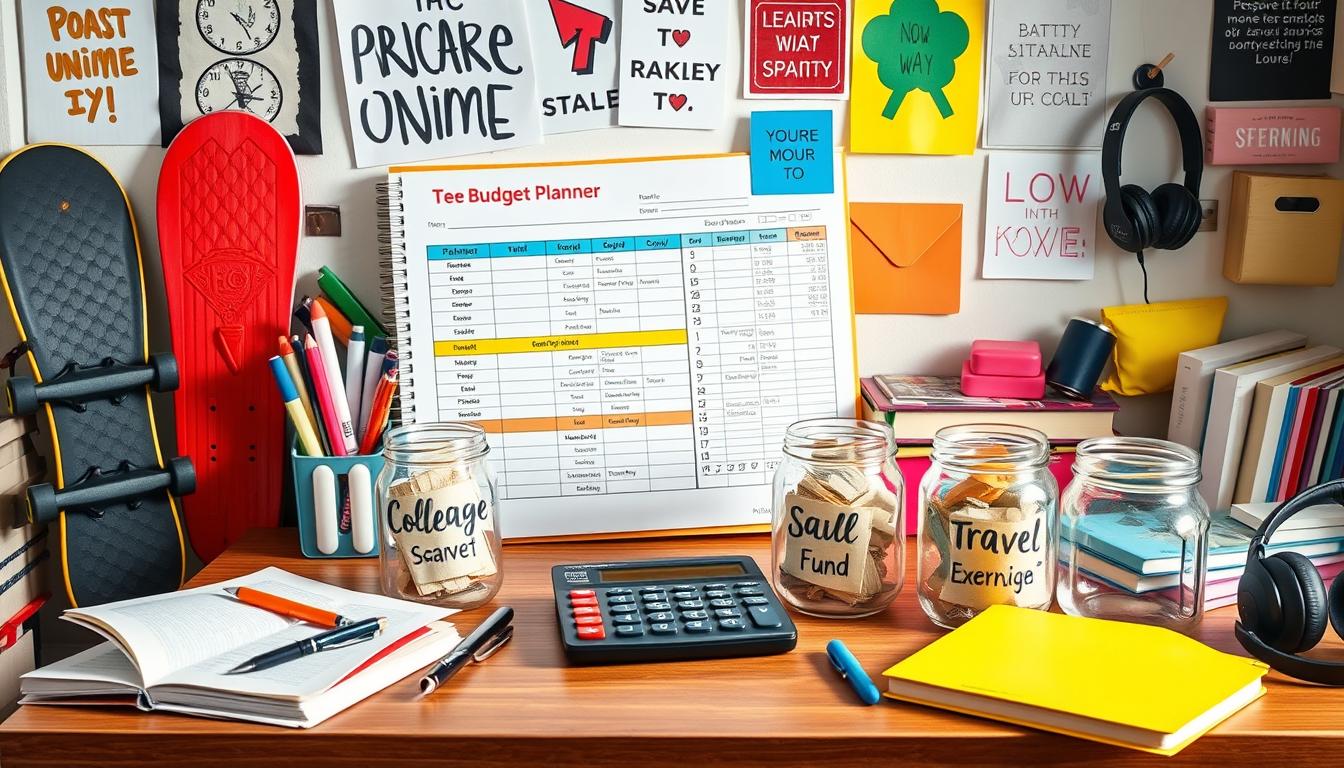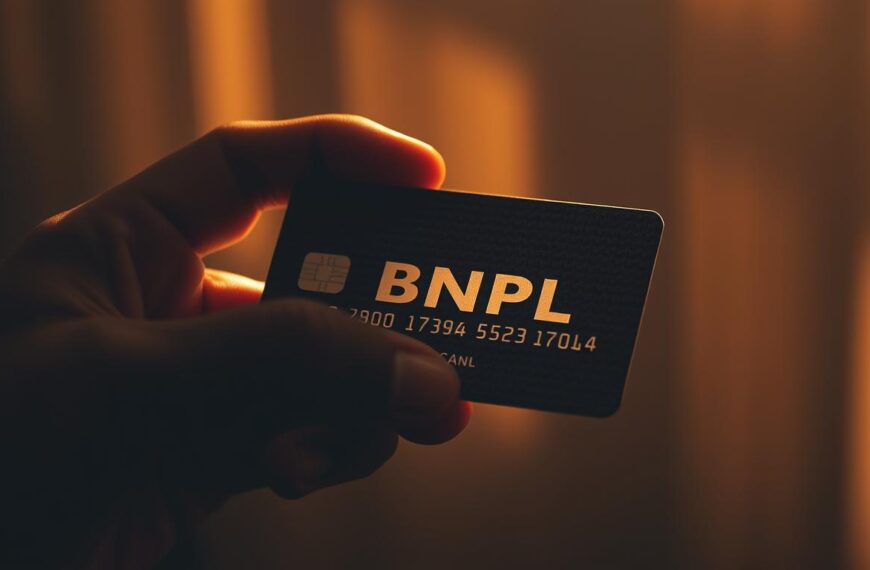Mastering teen budgeting is crucial for lifelong financial success. It empowers teenagers to make smart decisions about money. Learning to manage finances early builds confidence and independence.
Teens have various income sources, including allowances and part-time jobs. Tracking and managing these funds is key to effective budgeting. Side jobs like pet sitting or tutoring can boost income.
Budgeting creates financial freedom, not restrictions. It helps teens save for future goals, like buying a bicycle. Social media now offers engaging financial education for young people.
Financial literacy begins with understanding basic principles. Tracking expenses and setting realistic savings goals are essential skills. Rewards programmes can make saving more exciting for teens.
Experts suggest the 50/30/20 rule: 50% for necessities, 30% for wants, and 20% for savings. This approach helps develop disciplined financial habits that last a lifetime1.
Understanding Income and Setting Financial Goals
Grasping money matters as a teen can be tricky. Yet, knowing your income and setting clear goals is vital. Many teens now see the importance of financial planning.
Calculating Monthly Income Sources
Spotting your teen income sources is key to financial freedom. These may include part-time jobs, allowances, gifts, and online work.
- Part-time job earnings
- Allowance from parents
- Monetary gifts
- Online freelance work
Teens who budget often grasp their income and expenses better. Linking work to income helps build a strong money mindset.
Creating Realistic Financial Targets
Setting achievable money goals spurs teens to save wisely. On average, teens aim to save £500 within six months2. This helps sort needs from wants.
Importance of Goal Setting for Future Success
Students with long-term money goals often track expenses more closely. An emergency fund can offer vital financial safety.
Financial goals are not just about saving money, but about building a foundation for future financial independence.
Many teens now use apps to manage their cash. This shows a smart, tech-savvy approach to handling finances.
Essential Budgeting Tips for Teens
Managing money is a crucial skill for teenagers. Smart budgeting can set the foundation for lifelong financial success3. It helps young people build confidence in their money management abilities.
Many teens seek practical ways to manage their money. Tracking spending and setting clear financial goals are critical first steps3. These habits help develop strong budgeting skills.
The 50/30/20 Rule for Teen Budgets
The 50/30/20 rule offers a simple framework for teen budgeting. Here’s how it works:
- 50% for essential expenses
- 30% for discretionary spending
- 20% for savings and financial goals
This guideline helps teens balance their spending whilst prioritising savings4.
Pay Yourself First Method
The ‘pay yourself first’ approach is a powerful budgeting technique. It involves setting aside savings before spending on anything else4. Teens who adopt this strategy can build substantial savings over time.
| Budgeting Strategy | Key Benefit | Recommended Percentage |
|---|---|---|
| Pay Yourself First | Prioritise Savings | 10-20% |
| 50/30/20 Rule | Balanced Spending | 20% to Savings |
Zero-Based Budgeting for Beginners
Zero-based budgeting helps teens account for every pound earned. The goal is to allocate all income, ensuring expenses equal zero3. This approach encourages mindful spending and intentional financial planning.
“Financial freedom starts with understanding where your money goes” – Financial Expert
These budgeting strategies can boost financial literacy among teens4. They create a strong foundation for future financial success.
Smart Ways to Track and Manage Spending
Tracking your spending habits is vital for financial success. Money management apps have transformed how teens monitor expenses. The average teen spends about £2,150 annually, making expense tracking crucial.
Here are some practical ways to manage your spending effectively:
- Use digital money management apps designed for teens
- Create a weekly spending log
- Set clear budget categories
- Review your expenses regularly
Pro tip: Begin by understanding where your money goes. Tracking expenses often reveals surprising spending patterns.
“Knowledge of your spending is the first step to financial freedom” – Financial Wisdom for Young Savers
Several powerful tools can help you track spending habits:
| App Name | Key Features |
|---|---|
| Monzo | Real-time expense tracking |
| YNAB | Budgeting and goal setting |
| Starling | Instant spending notifications |
Consistent expense monitoring helps develop healthier financial habits. Small changes in spending can lead to significant savings over time5.
A monthly savings of £25 could grow to £1,500 in five years5. Teens with strong financial literacy manage money better and reduce debt risks5.
Start tracking your expenses today. Take control of your financial future and watch your savings grow!
Building Healthy Saving Habits Early
Smart money management in your teens sets the stage for financial success. Learning banking basics and developing strong saving habits can secure your financial future6.

Opening Your First Savings Account
A teen savings account is vital for learning about money. Sadly, only 30% of young adults have a defined savings plan6.
This means most teens miss out on valuable financial lessons. Opening an account early can change that.
- Research banks offering specialised teen accounts
- Compare interest rates and account features
- Consider accounts with low minimum balance requirements
Making Saving Automatic and Consistent
Automatic savings can revolutionise how teens handle money. Regular transfers help teens save without constant reminders7.
About 65% of teens with specific savings goals achieve greater financial success7. Setting clear targets can boost your savings potential.
“Saving money is not about what you earn, but what you keep.” – Unknown
Understanding Banking Basics
Grasping basic banking concepts is crucial for financial literacy. Learning about interest rates and compound growth helps teens make smarter choices6.
| Savings Strategy | Potential Monthly Savings | Annual Potential |
|---|---|---|
| 50/50 Rule | £50 | £600 |
| Fixed Amount Saving | £100 | £1,200 |
Financial apps can cut overspending by 25%, making expense tracking easier for tech-savvy teens6. These skills build a strong foundation for future financial independence7.
Balancing Social Life and Budget Management
Teens often face pressure to spend money on trendy activities. It’s crucial to enjoy time with friends without overspending. Learning this skill helps create a healthy financial future8.
Budget-friendly activities are perfect for an exciting social life on a tight budget. Here are some creative ideas to try:
- Host movie nights at home instead of expensive cinema trips
- Organise group picnics in local parks
- Use free community events for socialising
- Try potluck gatherings where everyone brings a dish
Digital tools can help manage social spending effectively. Many banks offer no-fee savings accounts for teenagers. These accounts track expenses and set spending limits8.
Budgeting apps are great for monitoring weekly social costs. They can help prevent overspending and keep finances in check9.
| Social Activity | Cost-Effective Alternative |
|---|---|
| Restaurant Dining | Home-cooked Group Meal |
| Cinema | Streaming Movie Night |
| Shopping Spree | Clothing Swap Party |
Remember, true friendship isn’t about spending money, but creating memorable experiences together.
Part-time jobs like babysitting can provide extra social funds. These jobs also teach valuable money management skills8. The aim is to gain financial independence while maintaining friendships.
Teens can use smart saving strategies to manage their finances. This approach helps build essential money skills for the future9.
Conclusion
Developing money management skills is a transformative journey. It begins with understanding financial literacy basics. Budgeting isn’t just about tracking money; it’s building a foundation for future success1011.
Nearly 75% of teens feel unsure about their financial knowledge. Starting early is crucial for long-term benefits11. Mistakes are part of learning about finances.
If you miss a savings goal, see it as a learning chance. Think about what happened and how to improve next time. Stay curious and committed to understanding money management skills10.
Your financial journey is unique. Every step towards better budgeting brings you closer to financial independence. Financial literacy is an ongoing learning process.
By using strategies like tracking expenses and exploring budgeting methods, you’re securing your future. These skills will empower you financially10.
FAQ
Why is budgeting important for teenagers?
Budgeting helps teens develop crucial financial skills early on. It teaches them to manage money wisely and make smart spending choices. These skills lay the groundwork for future financial success and independence.
How can I start tracking my spending as a teenager?
You can use budgeting apps, create a spreadsheet, or use a simple notebook. Be consistent and categorise your expenses to understand your spending habits. This will help you see where your money goes each month.
What’s the best way to save money on a teen budget?
Try the ‘Pay Yourself First’ method. Set aside a portion of your income into savings before spending. Start with a small percentage and gradually increase it over time. This habit will help you build a solid savings foundation.
How can I manage my social life without overspending?
Look for budget-friendly activities like free community events or movie nights at home. Suggest low-cost alternatives to expensive outings with your friends. Be open about your budget limits. Remember, true friendships don’t depend on how much you spend.
What should I do with my first savings account?
Choose an account with no minimum balance and low fees. Set up automatic transfers to make saving easier. Try to add money consistently and learn about compound interest. Even small, regular contributions can grow over time.
How can I stick to a budget as a teenager?
Use the 50/30/20 rule: 50% for needs, 30% for wants, 20% for savings. Set clear financial goals and track your spending carefully. Be patient and review your budget often. Don’t worry about occasional slip-ups; budgeting improves with practice.
What are some income sources for teenagers?
Teens can earn through part-time jobs, freelance work, tutoring, or babysitting. Dog walking, online surveys, and selling handmade items are also good options. These can provide steady or occasional income to help build your savings.
How do I resist peer pressure to spend money?
Be confident in your financial goals and learn to say no politely. Suggest cheaper activities and surround yourself with friends who respect your choices. Remember, being financially responsible shows maturity, not limitation.

















